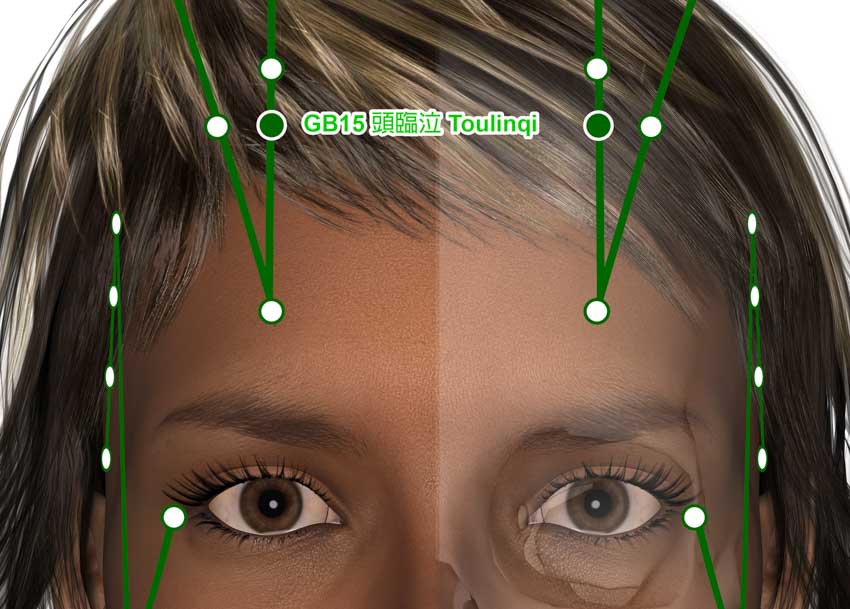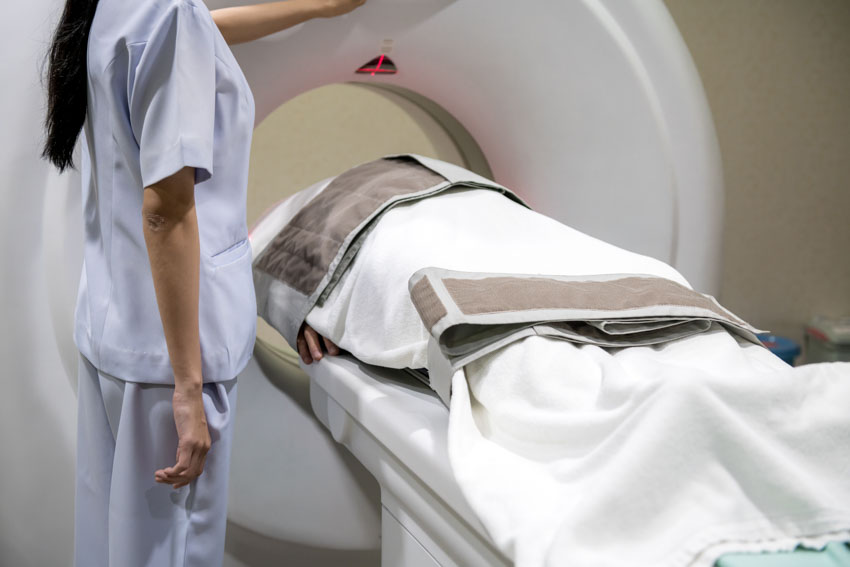
Acupuncture alleviates schizophrenia and MRIs reveal that acupuncture regulates spontaneous neural activities in specific regions. Shanghai Jiaotong University Affiliated Mental Health Center researchers combined acupuncture with standard drug therapy. Patients receiving both medications and acupuncture in a combined treatment protocol had superior patient outcomes compared with patients receiving only drugs. Results were determined by analysis of clinical symptom scores and functional magnetic resonance imaging (fMRI) results. [1]
Using fMRI, the research team discovered that acupuncture “stimulates the spontaneous neural activities in patients with schizophrenia.” In this study, acupuncture improved the amplitude of low frequency fluctuations (ALFF) value of the superior and middle gyri of the left temporal lobe and the occipital and parietal lobe. ALFF is an fMRI indicator that is used to measure fluctuations in fMRI signal intensity. In addition, regional homogeneity (ReHo) analysis shows that the acupuncture treatment group has increased ReHo values in the lingual gyrus of the left occipital lobe. ReHo is used to determine the connectivity relationships with the nearest neighbors of a node in the brain graph. The superior and middle gyri of the temporal lobe are known to be involved in cognition and other mental activities. The reserachers not that prior research indicates that the neural network between the temporal lobe and parietal lobe is involved in emotional responses and is related to schizophrenia.
Symptoms
In the Shanghai Jiaotong University Affiliated Mental Health Center research, clinical global impression (CGI) scores of the acupuncture treatment and drug control groups were compared before and after treatments. CGI is a scale used to measure a patient’s severity of illness. The scores in the acupuncture treatment group reduced from 5.83 ±1.02 before treatment to 1.64 ±0.37 after treatment. There was a statistically significant difference before and after treatment and the acupuncture group significantly outperformed the control group. The data demonstrates that the addition of acupuncture to standard drug therapy reduces levels of symptom severity for patients with schizophrenia.
Design
The researchers (Pan et al.) used the following study design. A total of 101 subjects participated in the study and were divided into a drug control group and an acupuncture treatment group, with 51 and 50 subjects in each group respectively. They were diagnosed with schizophrenia (remission state) between January 2018 and January 2019. The drug control group received 2 mg of risperidone (twice per day) and 2 mg of trihexyphenidyl (twice per day), for a total of 12 weeks. The treatment group received acupuncture in addition to the identical drug treatment administered to the drug control group. Risperidone is an antipsychotic drug used for treating schizophrenia. Trihexyphenidyl is used to treat or prevent adverse effects associated with antipsychotic medications. The following selection criteria were applied for the treatment group subjects:
- Consistent with the diagnostic criteria of schizophrenia according to the International Classification of Diseases 10th edition (ICD-10).
- Age between 20 and 65 years.
- The course of disease was > 3 years.
- The Brief Psychiatric Rating Scale (BPRS) score was ≤ 35 points.
- Patients or their families signed informed consent.
The following exclusion criteria were applied:
- Organic mental disorders, substance-abuse mental disorders, intellectual disability
- Diseases that affect the mental state of patients, such as chronic obstructive pulmonary disease (COPD), angina due to coronary heart disease (CHD), stroke, joint pain, acute mental illness, and tumors.
- Fainting or intolerant to acupuncture treatment
The statistical breakdown for each group was as follows. The treatment group was comprised of 28 males and 22 females. The mean age of the treatment group was 37.56 ±9.72 years. The average course of disease was 15.67 ±9.56 years. The control group was comprised of 27 males and 24 females. The mean age of the treatment group was 36.91 ±9.23 years. The average course of disease was 15.45 ±9.42 years. Both groups were equivalent in gender, age, course of disease, and other relevant demographics, setting the basis for a fair comparison of results.
Acupuncture Procedure
The primary acupoints selected for the treatment were the following:
- GV20 (Baihui)
- EX-HN 3 (Yintang)
- GB20 (bilateral, Fengchi)
- GB8 (bilateral, Shuaigu)
- GB15 (bilateral, Toulinqi)
Acupuncture treatment commenced with patients in a sitting position. After disinfection of the acupoints, a 0.25 mm × 40 mm disposable acupuncture needle was inserted into each acupoint, reaching a depth of 3–7 mm. Once a deqi sensation was obtained, bilateral Fengchi was connected to an electroacupuncture device with a continuous wave. The frequency was adjusted to 10 Hz. For other points, the needles were applied with the Ping Bu Ping Xie (mild tonifying and attenuating) technique every 15 minutes. The needles were retained for 30 minutes. The acupuncture treatment was conducted twice per week, for a total of 12 weeks.
Conclusions
Clinical data and MRIs indicate that acupuncture is effective for the treatment of schizophrenia. According to the research, acupuncture combined with risperidone and trihexyphenidyl into an integrated treatment protocol is more effective than using drug monotherapy (risperidone and trihexyphenidyl). Pan et al. conclude that acupuncture is safe and effective for the relief of schizophrenia.

HealthCMi Review
The HealthCMi staff has reviewed the research and find it consistent with clinical findings. Many times, patients suffering from schizophrenia cannot identify with the voice that is their own. In other words, patients describe this as hearing many voices but not knowing which one is their true voice. Our staff clinical findings confirm that acupuncture treatments reduce or eliminate extraneous voices and personalities, thereby allowing a patient to settle into their known self. We strongly recommend including acupuncture into treatment protocols for patients with schizophrenia.
Reference:
[1] Pan LY, Shen HB, Zhang JB, et al. Effects of acupuncture on brain function in patients with schizophrenia of remission [J]. Shanxi Journal of Traditional Chinese Medicine, 2020,06:819-822.


